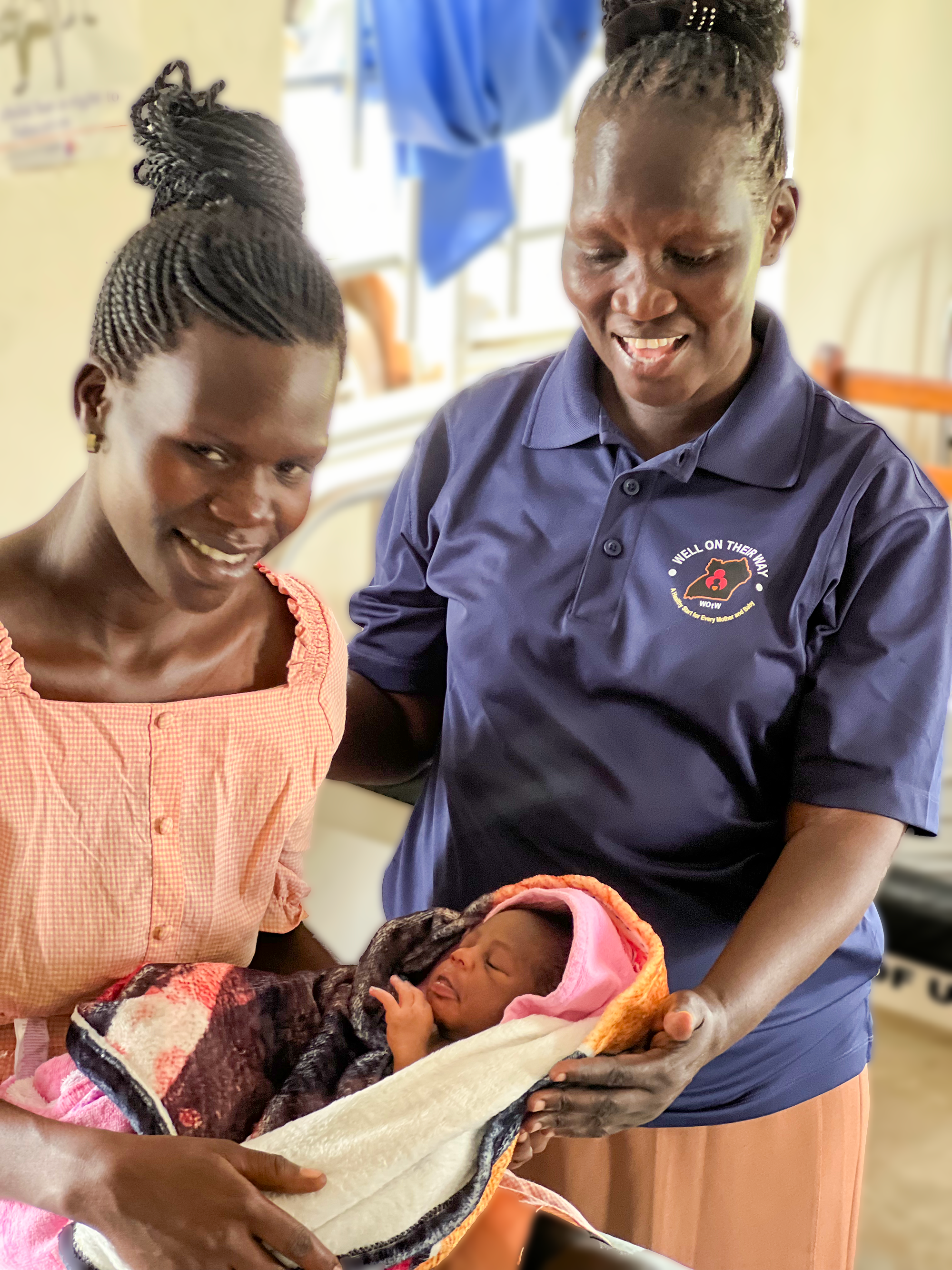Welcome to Well On their Way’s first blog!
To briefly share who we are before diving into the details of our most recent trip to northern Uganda, Well On their Way (WOtW) is an all-volunteer medical team focused on maternal/child health. Our US-based team has been traveling to the Gulu District since 2011 and follows a Train the Trainer model. Using evidence-based curricula developed by the World Health Organization (WHO), we train midwives who have in turn trained over 100 skilled health providers (midwife, nurse, clinical officer) who now have the essential delivery core knowledge and skills.
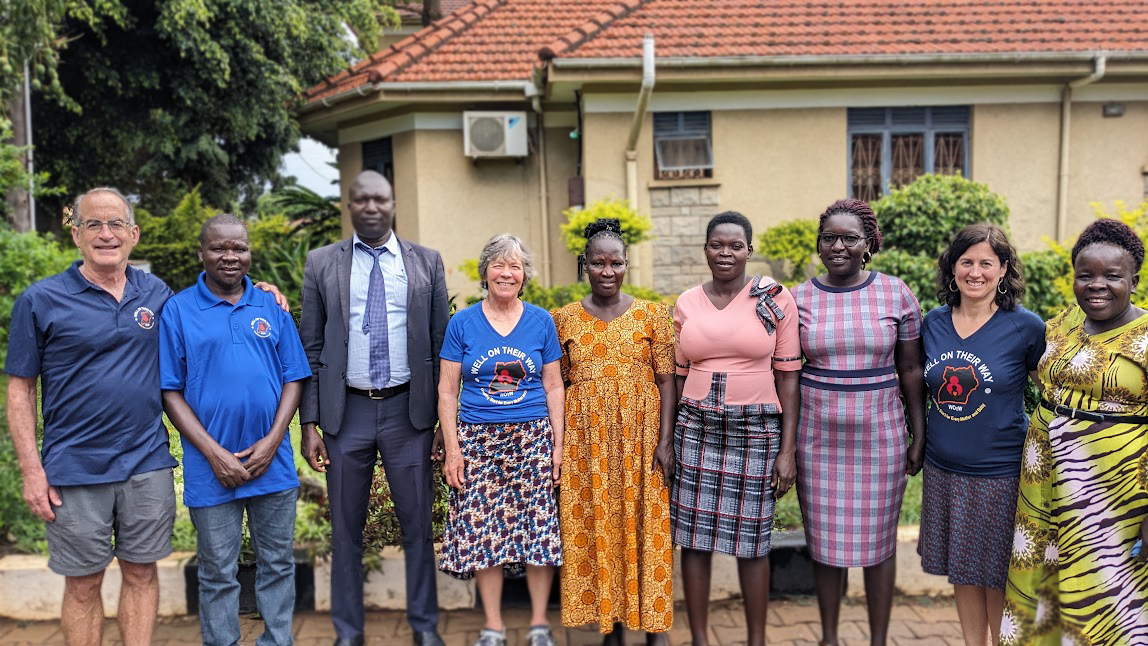
Well On their Way Team in Uganda
Over the past decade, we have provided training in these five curricula developed by the WHO specifically for resource poor settings. They have included:
- Essential Newborn Care 1 (previously Helping Babies Breathe – assisting an asphyxiated baby within the first “Golden Minute” of life)
- Essential Newborn Care 2 (previously Essential Care of Every Baby – care of the baby within the first 24 hours of life)
- Bleeding After Birth (management of post-partum hemorrhage)
- Essential Care of Labour and Delivery (monitoring a mother in labor; identifying abnormalities and managing and/or referring appropriately)
- Pre-Eclampsia/Eclampsia (identifying and managing this life threatening complication of pregnancy)
Our trip this March was an unusual visit for WOtW as we did not introduce a new training program. This year we chose to build a deeper connection with the Uganda team to evaluate and solidify the work we have done together. We had three days of very productive meetings and spent one day visiting four health centers of various size and capacity to get an understanding of what the facilities were like, and to get feedback from the health center staff on the implementation of a logistically complicated program of refresher training, currently in its early stages.
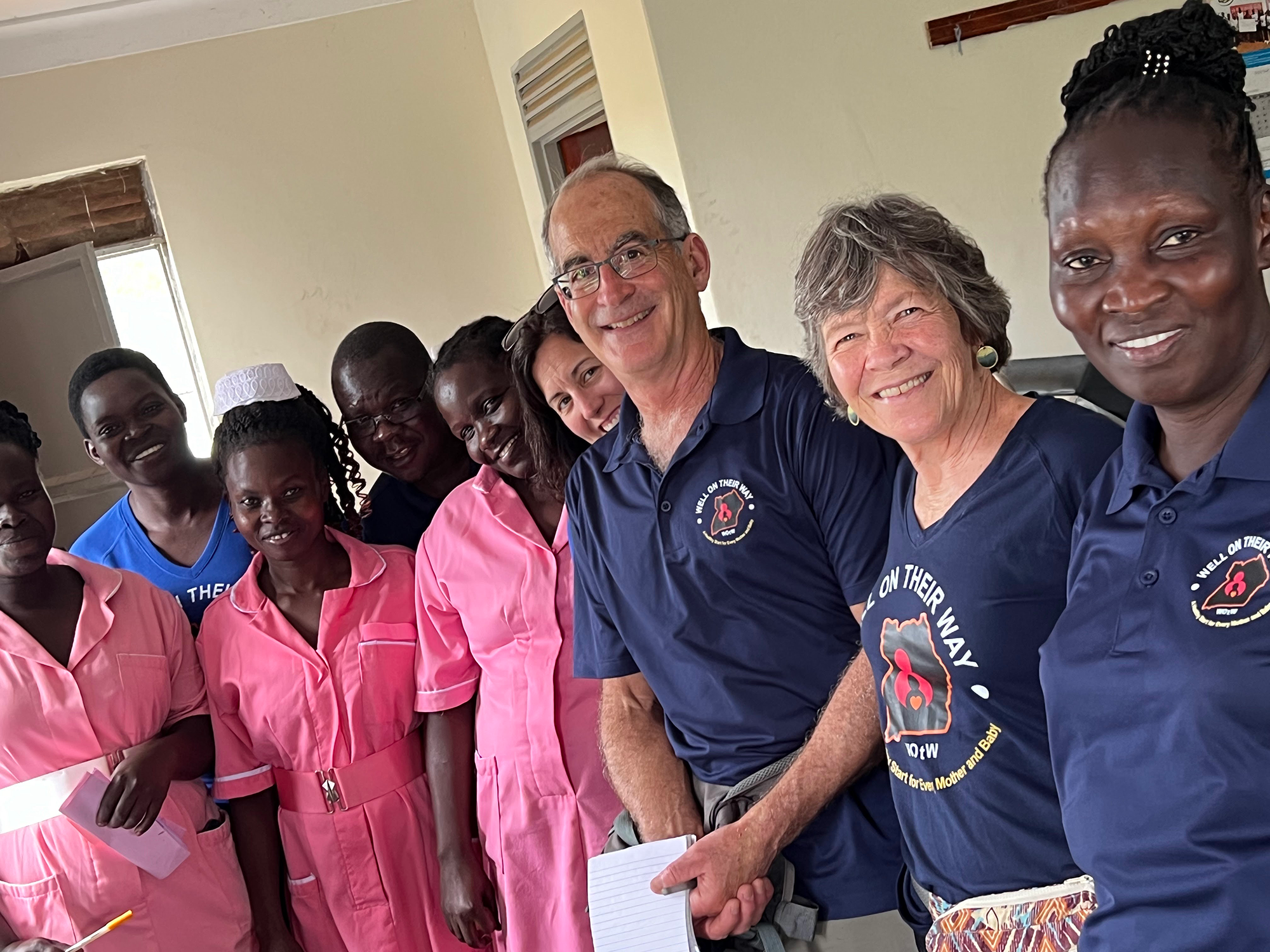
Well On their Way Site Visit Crew
The meetings with our Ugandan team members were spent assessing WOtW’s programs thus far, analyzing outcome measures, and planning for the next few years. The in-depth meetings were very informative for the US team, giving us an opportunity to better understand multiple aspects of WOtW Uganda team’s work including the impact of our training programs, the hopes and goals of our Ugandan partners, the local political and medical landscapes and how to navigate them as a partner organization to the Ministry of Health, and the successes and challenges of WOtW’s work. The site visits provided the US team with a first-hand report on the health center-based practice sessions of the five maternal/child health training programs, a recently implemented system of rotating training kits every eight weeks among the 23 health centers.
As always, we were so impressed by our Ugandan medical colleagues’ project ownership, their unwavering desire to advance their knowledge and practice, and their commitment to fellow health care workers and the mothers and babies of their communities.
The US team particularly enjoyed the site visits. We saw some amazing improvements going on structurally (new buildings, renovations, etc.). It was enjoyable to talk with both the skilled health staff (midwives, nurses, clinical officers) and the Village Health Team members. (VHTs – more information is presented below). We learned how thinly staffed a smaller health center can be. One ancillary benefit of providing equipment to health centers for practice sessions is that the higher skilled staff members use it as an opportunity to educate anyone who may be around to assist, including VHT members and janitorial staff. When the skilled provider is alone for a delivery, these freshly educated individuals can now perform basic skills such as drying a baby or retrieving equipment. We thought that was brilliant!
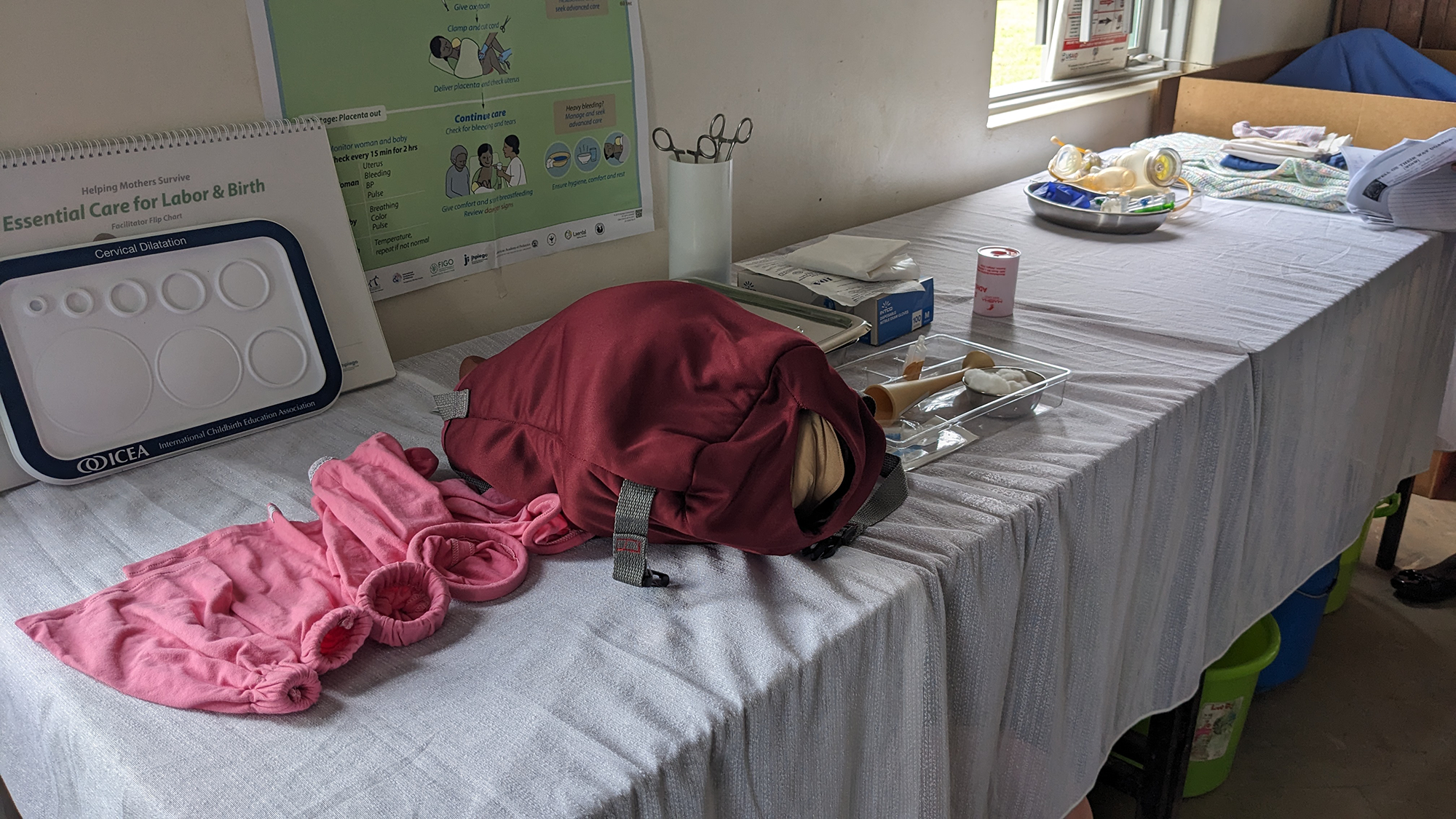
LDHF Equipment
Together, the US and Uganda teams created an ambitious plan for the following twelve months, including but not limited to:
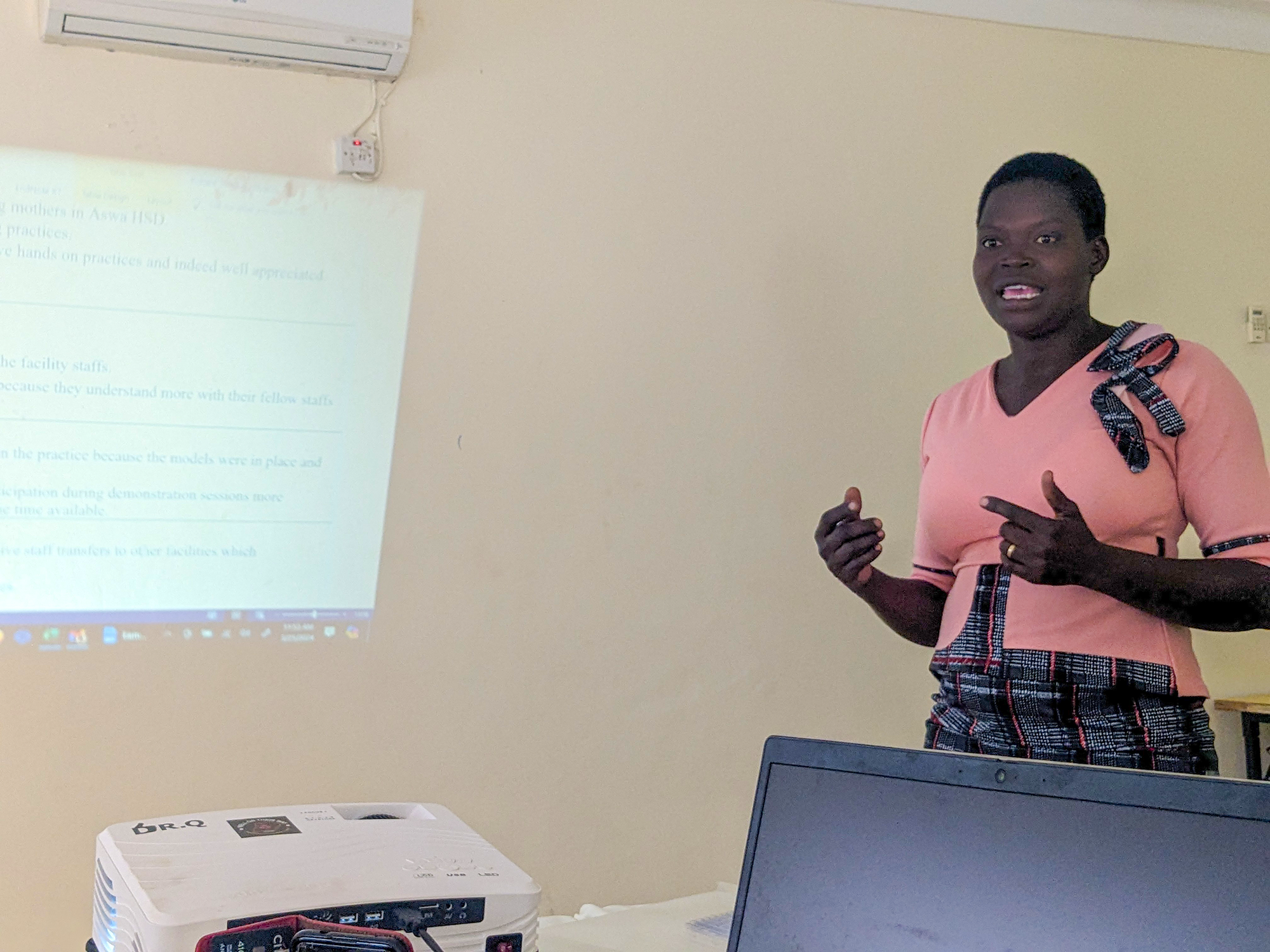
- Training 20 newly hired health care workers this July and August in the five 2-day WHO courses described above.
- Throughout the 12-month period, continued rotation of training equipment and materials among 23 small, rural health centers allowing for anyone who may attend or assist in a delivery to have the opportunity to refresh his/her skills and knowledge in the five aforementioned programs.
- In June, launching a basic training pilot project for VHT members in Paibona subcounty, a small region of Gulu District felt by the Ugandan team to have the greatest need. Elected and highly trusted by their village, VHTs are provided with only minimal training, however they know every household in their villages and are often sought as the first line of health care. By providing training, WOtW will increase the VHTs’ comfort and engagement with maternal/child health. The goals are to encourage pregnant women to attend prenatal visits early in their pregnancy and to deliver in a facility rather than at home, both of which have been demonstrated to improve the outcomes of pregnancy and delivery. Data will be followed closely over six months and if these goals are met, the program will be expanded to the entire Gulu District. WOtW hopes to obtain grant support for such expansion.
- Preparing to introduce a new WHO training program during our 2025 site visit.
- The WOtW Uganda team will be applying to the Uganda government to have official status as a Community Based Organization.
We are thrilled the Uganda team has secured rent free office space within the Ministry of Health building. We are so grateful for this and that the government recognizes WOtW Uganda team’s essential work. This summer WOtW will provide funding for furniture and a computer. They are very excited about having their own office space, and so are we!
The entire WOtW team is pleased with our growth, expanding relationships and moving forward. The US team once again felt so blessed to have the pleasure of working with our Ugandan colleagues. More importantly, our friendships keep growing and mothers and newborn babies are getting the healthy start they deserve – so they can be Well on Their Way!
